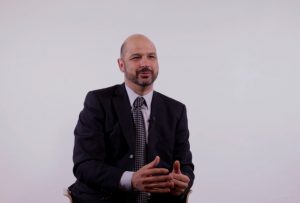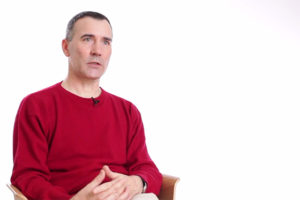Ethics for an Age of Commerce
Economist Deirdre McCloskey on fundamental human virtues, their secular interpretation and necessary applicati...
Augustine has a famous comment in The Confessions , where he says: “Ask me what time it is – I can tell you,but if you ask me what time is – I’m in a loss”. In many ways this inaugurates the history and philosophy of the meaning of time.
What does language tell us about time that might not yet have been included in Heidegger’s thinking of time or even into the history of philosophy of time from the Greeks up to the present? What does language tell us about time? Language tells us that being, verb, every verb, every happening, every event is tensed – it has past, present or future time. Time is expressed in language in terms of tense. This why all verbs in German are time verbs – Zeitwörter, they have their time. As linguistic tells us, words not only have time, they also have aspect. What does it mean to think of a verb as having an aspect as well? There is a difference, for example, between “I fall” and “I’m falling”. This is an aspectual difference that is not reduced to temporal difference. All verbs, even the verb “being”, have time and aspect. It is precisely this aspect that is unthought in philosophy of time.
If time is understood as a schema of sense, imagination and knowledge, that also means that sensing, imagining and knowing have an aspect. I sense continuously or discontinuously, completely, incompletely – these are not temporal determinations and cannot be reduced to temporal determinations. If time is universal even for Heidegger, so too is aspect, just as universal. Therefore, we need to think of the way, in which being both has its time (presence and absence), and its aspect (complete or incomplete).

Economist Deirdre McCloskey on fundamental human virtues, their secular interpretation and necessary applicati...

Communication scholar Grant Kien on intercontinental ballistic missiles, critical geography, and John Locke

Historian Richard Bourke on political community, history of political philosophy, and the modern struggle over...